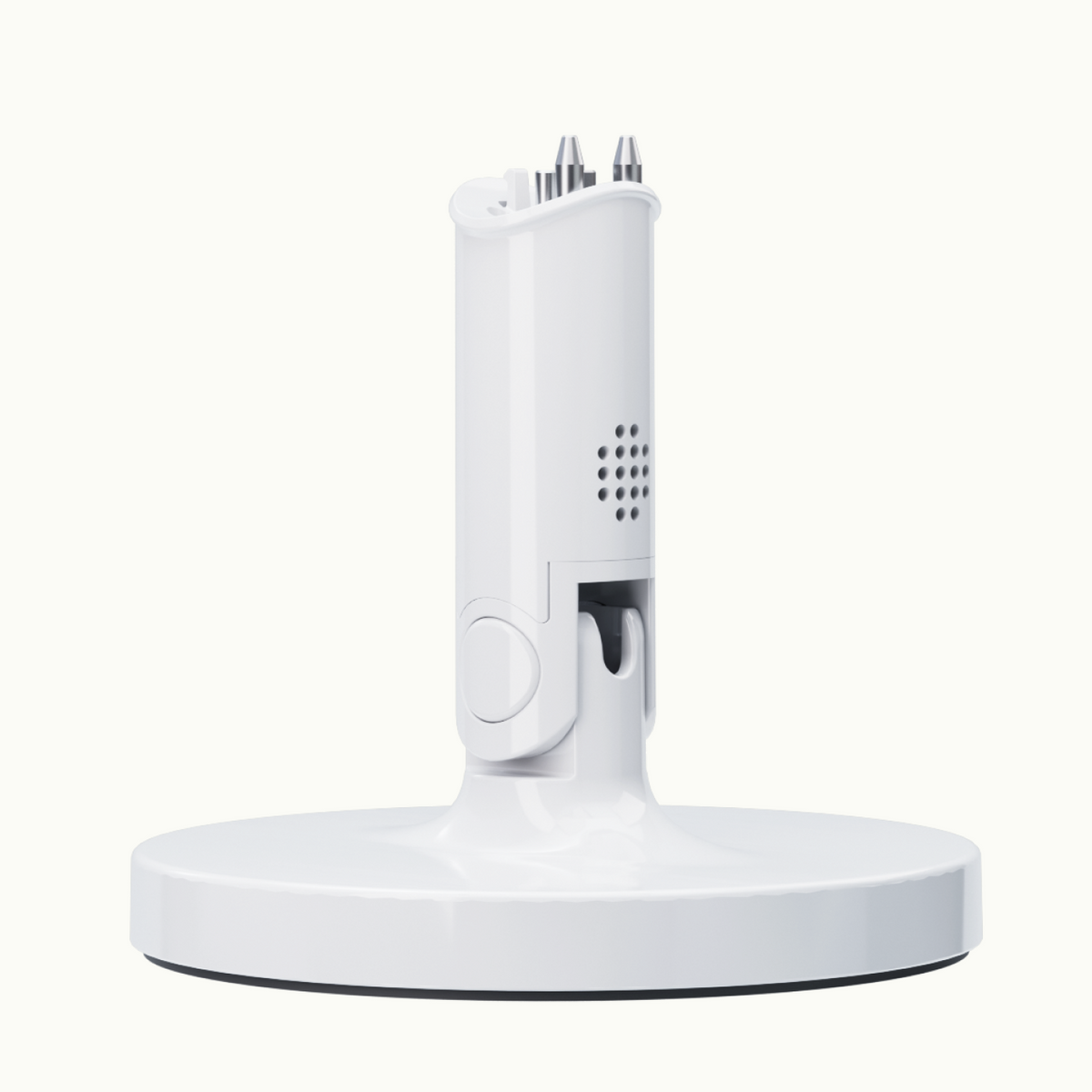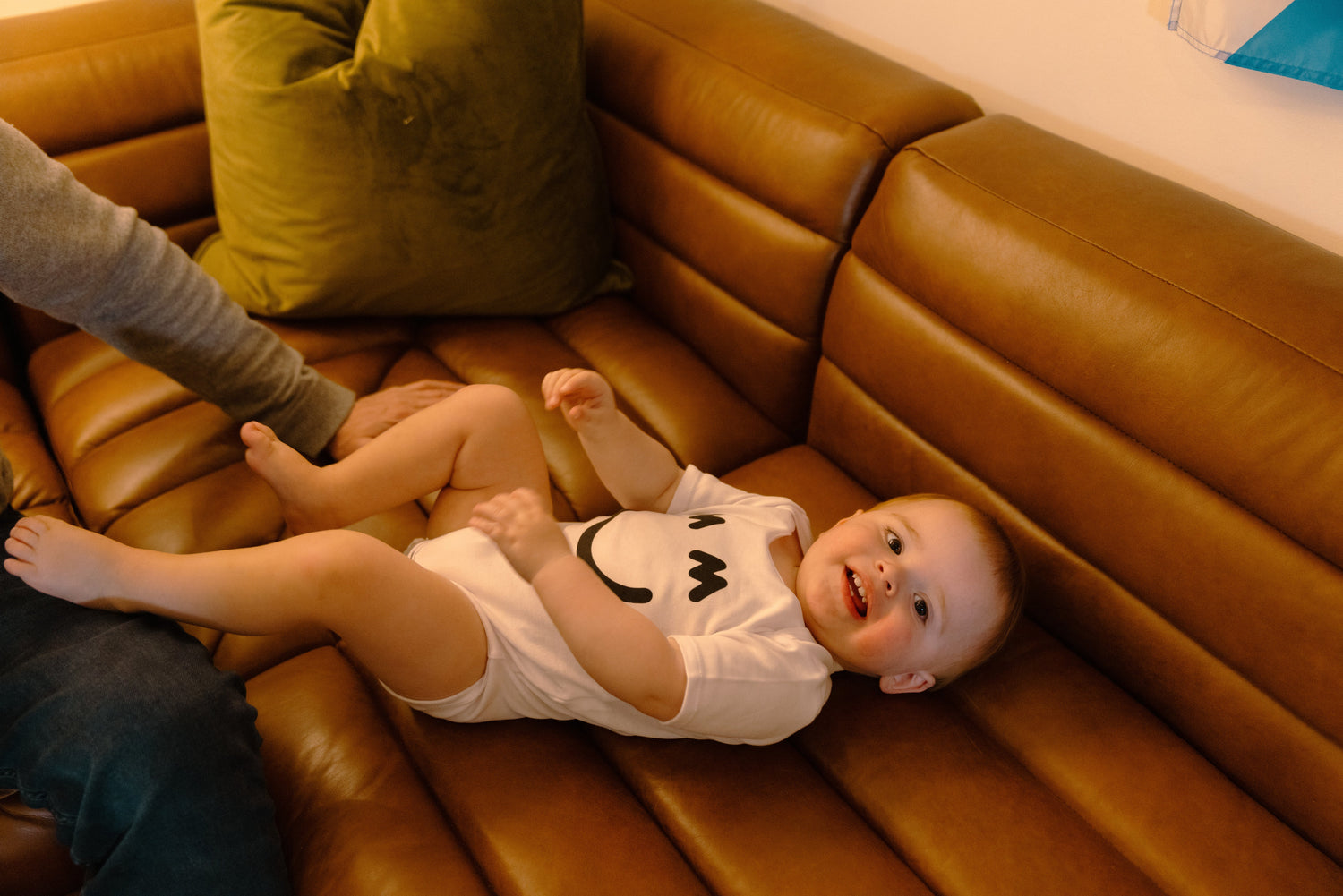8 Month Old Nap Schedule:
Near the beginning of this age range, you may find that you’re still trying to work towards certain sleep, nap, and feeding patterns that apply to 6 month old babies. That’s fine! Every baby will progress at their own pace, depending on their unique preferences and growing bodies. Around 8 months, they’ll probably still be napping for 2-4 hours during the day.
8 Month Old Feeding Schedule:
You may have started feeding your baby solid foods a couple of months ago (or perhaps longer). Some babies will want to devour everything you put in front of them, some will be a little picky about the different tastes and textures and some may still not have the hang of it just yet…and that’s totally fine and normal. It’s a learning process. Whichever category your baby falls into, your baby should now be attempting 3 meals a day at 8 months. This may seem futile if your baby is still struggling to move the food to the back of their mouth and swallow, but the mouth is a muscle after all, and practice makes perfect.
Nighttime feeds should be gone at this point. Your baby is capable of lasting through the night without food — what they need more than anything at this age, is a good night’s rest! Early on, your baby should still be taking about 4 milk breast milk or formula feeds a day. Between 12 and 14 months, you may wish to switch your baby to cow milk instead of formula or breastfeeding, though you’re welcome to keep breastfeeding.
How Long Should A 8 Month Old Sleep?
At 8 months, your baby will probably still be sleeping around the same amount of time overall as they were at 7 months. In the evenings, you can expect your little one to sleep for 11-12 hours.
As you begin to see an increase in your baby’s gross motor skills, social awareness, language awareness, etc. you’ll notice the importance of routine, dependable transitions and consistency. This helps your baby make sense of the world and take the sleep they need. Though they may not be able to consciously explain or even comprehend why they need to sleep, their mental and physical development is leading them in that direction. (Kinda cool right?)
There will probably be some milestones that your baby reaches around this age, so get excited! Learning how to sit or stand may be easy, thanks to their personal gym, aka crib. It is possible that these movements will cause a disruption in sleep, but don’t worry! You just need to be consistent when dealing with the aftermath. Beware, your baby may quickly realize that this is a game — if they sit up, and your response is to rush over and lie them down, they’ll know to continue doing that. Avoid this silly game by showing them how to lie down (instead of just picking them up) and giving them the time and space to figure it out on their own. Lots of practice with these kinds of moments during the day will make this no biggie.
8 Month Sleep Schedule
|
Wake and Milk Feed 6:30 AM |
Pay attention to how your baby reacts to this morning's feed — if they're less hungry, you may consider cutting back on nighttime feeds. If you're breastfeeding, you will probably feel pretty full after a night of resting and not feeding. After baby's been fed, pump off some of that extra milk for later. |
|
Breakfast 7:30 AM |
Now that your baby is eating more solid breakfasts, take an opportunity to experiment with flavors and textures that your little one might come to love. Maybe some avocado on toast fingers, toast fingers with butter (or vegemite if you're Australian like one of our employees!). |
|
Nap time 8:30 AM - 9:30 AM |
|
|
Milk Feed 10:30 AM |
Once your baby is more comfortable on solid food, this feed may need to cut back a bit, especially if they're not hungry at this time. You may wish to push back by 30 minutes depending on when they awake from their nap, and maybe cut down on the amount you feed. |
|
Lunch 12:00 PM |
This solid lunch is a great time to start experimenting with flavors and textures. Encourage your little one to start feeding themself, even if it's just small pieces of food while the majority of their food is still guided by a caregiver! |
|
Nap time 12:30 PM - 2:30 PM |
Someone's ready for a nice long afternoon nap! Enjoy some time to yourself. |
|
Milk Feed 2:30 PM |
*feed me, feed me* time for post-nap milk. |
|
Dinner 5:00 PM |
Solid dinners are a great time to play with even more flavors and textures. Keep it consistent with lunch, if you'd like, or mix it up if baby's responding well to new foods. |
|
Bath 5:45 PM |
Splish-splash! It's time for a bath! |
|
Bottle and Book 6:15 PM |
Break up the last feed and bedtime with a song or story, to avoid having the little one fall asleep at the breast or bottle. |
|
Bed time 6:30 PM |
Time for bed. Sweet Dreams! |
Note: These are general guidelines based on the recommendations of our pediatric sleep advisors. All babies are different and your child may not be able to strictly adhere to this schedule. Always use your best judgment as a parent when setting your child's schedule.






